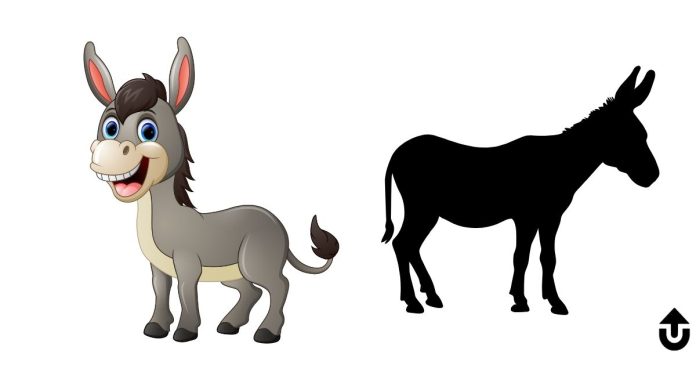The sound a donkey makes is commonly spelled as “hee-haw” or “eeyore.” The first represents the braying sound, while the second is often associated with the name of the famous donkey character from Winnie the Pooh. Both are attempts to capture the distinctive sound of a donkey’s bray.
Donkey sounds are usually represented in writing with different variations to capture their braying noise. Here are some more detailed examples and insights:
- “Hee-haw”:
- This is the most common way to spell the braying sound of a donkey. It represents the high-pitched, drawn-out “hee” followed by a deeper “haw” sound. The two syllables mimic the donkey’s loud and distinctive bray, often used in a variety of contexts to express loud, repetitive calling or distress.
- “Eeyore”:
- This is another version of the sound, made famous by the character Eeyore from Winnie the Pooh. The spelling “eeyore” can be seen as a more soft or subdued version of a donkey’s bray. It often evokes the melancholic tone of the character in the book. Although “eeyore” is not necessarily a direct representation of a donkey’s bray, it can still be used in casual contexts to refer to their sound.
- “Ee-aw”:
- Another variation of spelling is “ee-aw,” which attempts to mimic the two-part bray. This version might be used in some dialects or contexts but still captures the same core idea of a donkey’s vocalization.
- “Hee-hawing”:
- This term is often used as a verb to describe the act of making the braying sound: “The donkey was hee-hawing loudly.”
- “Bray”:
- While not a spelling of the actual sound, the word “bray” itself refers to the act of making this distinctive noise. It is commonly used in more formal or descriptive contexts, such as “The donkey brayed loudly.”
Donkeys’ brays can vary slightly in tone and pitch depending on the animal and the situation, but these are the primary ways people spell or describe their vocalizations. The bray itself can serve as a form of communication, expressing emotions like excitement, distress, or a simple call for attention.



